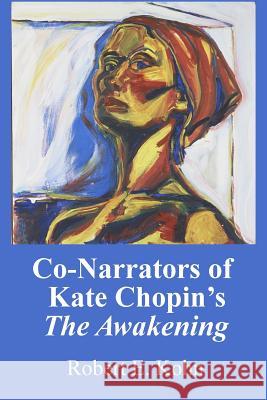Co-Narrators of Kate Chopin's The Awakening » książka
Co-Narrators of Kate Chopin's The Awakening
ISBN-13: 9781494736811 / Angielski / Miękka / 2014 / 74 str.
It is generally presumed that the narrator of Kate Chopin's The Awakening is a single individual, anonymous, and for the most part aligned with the author. Kohn argues that this novel is better understood if specific co-narrators are presumed, namely Charles Darwin, Walt Whitman, Elise Miltenberger, and Sigmund Freud. Darwin's presence sharpens the contrast between those characters in The Awakening who exhibit the genetically driven, adaptive behavior that enabled early humans to survive, as opposed to those characters who do not. The motives for Edna Pontellier's suicide are less than convincing, in part because it was inspired by lines from Walt Whitman's Leaves of Grass, which romanticize the ocean's invitation. Mademoiselle Reisz is likely Jewish-that particular characters in The Awakening consider her a disagreeable person may be compounded by an atmosphere of antisemitism. One of the Sacred Heart sisters who fought against the Vatican's antisemitism was Chopin's childhood friend Elise Miltenberger. Emil Kraepelin might have been a better choice for Chopin's co-narrator in the area of mental disorders.. Although Freud has lost credibility having felt "obliged to recognize that, in so far as one can speak of determining causes which lead to the acquisition of neuroses, their etiology is to be looked for in sexual factors," the general belief today favors Kraepelin's inclination to look for physical origins. Kohn suggests that Kate Chopin's remarkable obsession with her lover Albert Sampite may have been some kind of Obsessive Compulsive Disorder, strange enough to involve both Freud's sexual factors and Kraepelin's physical origins. This book covers topics including Antisemitism, Bipolar Disorder, Kate Chopin, Charles Darwin, Sigmund Freud, Emil Kraepelin, Obsessive Compulsive Disorder, Mother Superior Miltenberger, suicide and Walt Whitman.
Zawartość książki może nie spełniać oczekiwań – reklamacje nie obejmują treści, która mogła nie być redakcyjnie ani merytorycznie opracowana.











